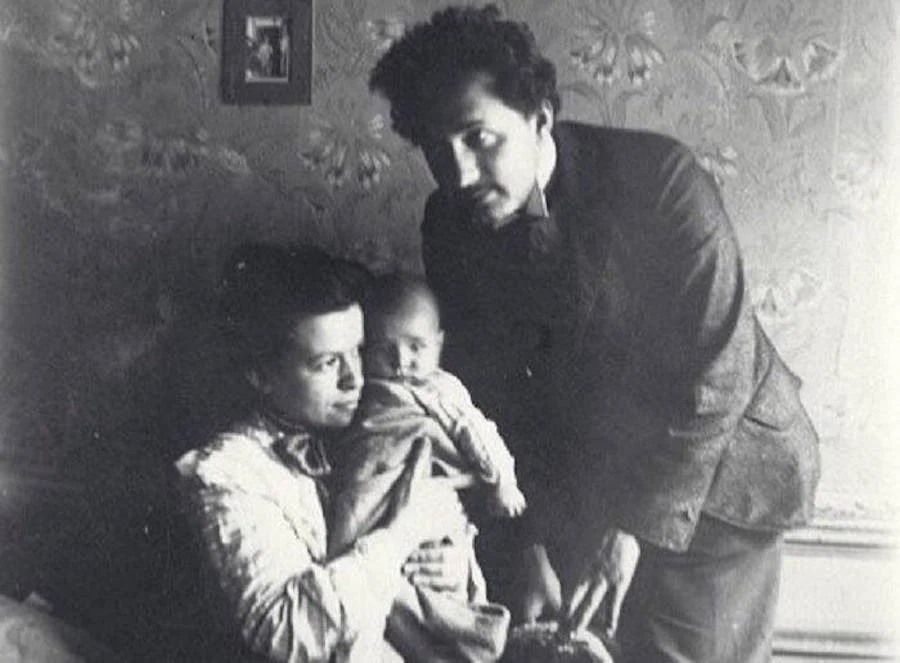Uncovering the Role of Family in Personality Formation
The family is one of the most influential forces in shaping our personalities. Our first experiences of love and acceptance, our first forays into the unknown, and our first experiments with power and control all take root in our familial relationships.
But what role does the family really play in personality development? In this article, we will explore the psychological forces at work when it comes to family dynamics and their effects on children’s personalities. We will examine how parents impact their child’s self-esteem, emotional regulation, communication style, and ability to form healthy relationships.
These insights can provide a valuable framework for understanding the importance of family and how it affects individual identity formation. They can also help us to better recognize potential issues within families that could be informative or detrimental to a child’s development. By understanding these psychological principles, we can better support children’s development throughout their lives.
Introduction to the Role of Family in Personality Formation
When you think of your family, what comes to mind? For many of us, it’s a feeling of warmth and love. Our family is one of the first relationships we form, and it’s an important one. In the early stages of life, these relationships shape our personalities—our behavior, beliefs, and values.
The family plays a crucial role in determining who we become as adults. As children, our interactions with our parents shape how we view ourselves and the world around us. We learn how to interact with others based on the relationships within our family unit. From understanding communication styles to setting boundaries, the dynamics in families provide important social cues that influence our behavior as adults.
It’s important to remember that each family is unique and no two families follow the same pattern or script. What works for one may not work for another; nonetheless, family influences can be seen throughout our lives, no matter how experienced or inexperienced you may be in the realm of familial relationships.
The Developmental Stages of Personality
You may be wondering how your family influences your personality development. To understand the role of family in your personality formation, it is important to consider the different developmental stages, which will each have their own characteristics and needs.
Stage One: Basic Trust vs. Mistrust
At this stage, which begins at birth, a trusting relationship with the primary caregiver is essential for healthy development. The quality of care and attention provided at this stage sets the tone for self-esteem and psychological resilience later in life.
Stage Two: Autonomy vs. Doubt
During this period, usually around age 2 to 3 years old, children begin to explore their boundaries and start to gain independence. When faced with too much criticism and control, children may start to develop doubts about their abilities or feelings of shame.
Stage Three: Initiative vs. Guilt
During this period, typically from age 4-6, children are eager to learn new skills and explore the environment around them. If they are met with too much criticism or punishment during this stage, they may feel guilty or ashamed for wanting a sense of independence or expression of self.
These developmental stages provide insight into how family can play an important role in the formation of personality—from providing a secure environment with consistent positive reinforcement early on to fostering creative exploration and critical thinking in later stages of development.
The Impact of Genetic Factors on Personality Formation
Although nurture may have great influence, nature is just as powerful. It is estimated that genetics can affect up to 50% of a person’s personality traits. What does this mean for families?
It means that family members share genetics, and those genetics have a role in influencing the personality of the individual. Genetic factors in personality formation include the following:
- Temperament: Genetic factors can influence the way a person responds to stimuli and handles stress.
- Cognitive abilities: Intelligence, language ability and creativity are all genetically influenced.
- Physical traits: Height, body type, facial features and even physical strength are all affected by genetics.
- Personality traits: Studies have shown that genetic factors can influence many different aspects of personality, including extroversion, agreeableness, openness to experience and neuroticism.
When taken together, these genetic influences end up creating a unique combination of characteristics in each individual family member that helps shape their personality. Although there may be some similarities between family members due to shared genetics, each person’s combination is likely to be quite distinct due to environmental influences and other sources of variation.
The Influence of Parents on a Child’s Personality
It’s no secret that your parents play an important role in shaping who you are and will become. Your family is the first place you form relationships and make connections, forming a foundation for the relationships you will have in the future.
Your family can also have a lasting impression on your personality. Research has shown that the relationship between parents and their children can have a strong correlation with their overall wellbeing and personality formation.
Parental Modeling
One way parents can influence their children is through modeling – be it positive or negative behavior. Parents can model how to handle difficult emotion or how to act in social situations, giving children examples of how to live their lives accordingly. It’s even been said that part of personality development is simply learning to imitate our parents’ behaviors in order to gain approval from them.
Parent-Child Bonding
Family bonding activities such as game nights, movie nights and weekend trips all play an important role in fostering strong relationships within a family. These activities give children opportunities to create meaningful relationships with their parents and siblings, building healthy attachments which can go on to shape their personalities positively.
Supportive Environment
Children need support from family members in order to grow emotionally and mentally; creating a supportive environment by listening to them, validating their feelings and respecting their autonomy allows them the opportunity to form healthy bonds with those around them which can influence long-term development.
The Impact of Siblings in Forming a Child’s Personality
We all have siblings – they can come in the form of biological brothers or sisters, step-siblings, or those with whom we share a strong bond. They have a profound impact on who we are and how we think.
Shared Experiences
As siblings, we share common experiences and form deep connections to one another. We learn how to cooperate and harmonize our desires with those of our siblings, finding ways to cooperate within the family dynamic. This helps us understand the importance of relationships and communication in our lives.
Being around our siblings also provides us with models for behavior and development. Children naturally emulate each other’s behaviors, accentuating both good and bad habits. For example, parents may notice that their children begin to act out more after being around an older sibling that engages in disruptive behavior.
Support System
Having siblings may also provide emotional support in times of need. Studies have shown that children often feel less loneliness when they have someone to confide in and share life’s experiences with. Furthermore, having a sibling can give a child someone to learn from and look up to when facing difficult situations. For example, a younger brother may watch his sister handle peer pressure in healthy ways and use her methods for dealing with similar issues himself.
From early in life, siblings play an important role in shaping our personalities – how we think, how we behave, and how we relate to each other throughout our lives.
Conclusion
To conclude, the family plays a critical role in the formation of personality. It is through their interpersonal relationships that individuals learn values, emotional responses, and social norms. Through the exposure to these practices, individuals can form an identity based on their family’s values, which can have an effect on success in adult life. Understanding these dynamics can be difficult, but exploring and understanding them can help us understand why people are the way they are. By recognizing the role of family in the formation of personality, we can gain new insights into our own identities and the identities of those around us.






